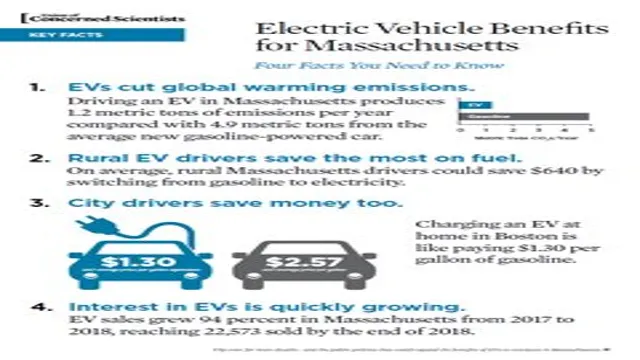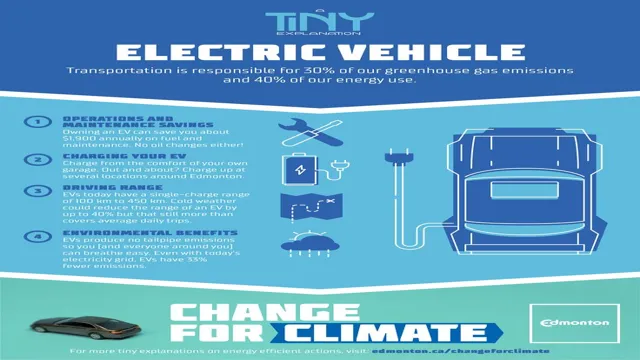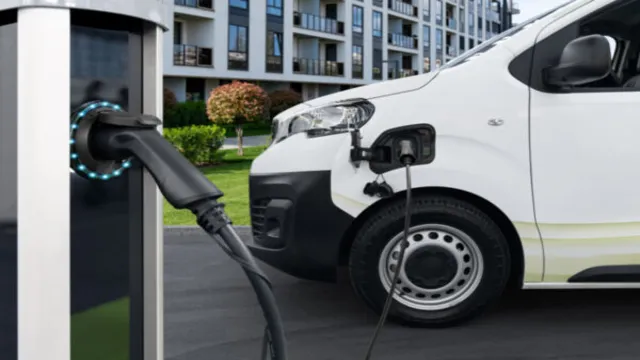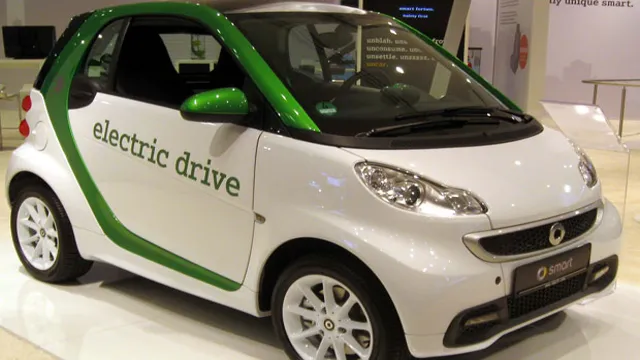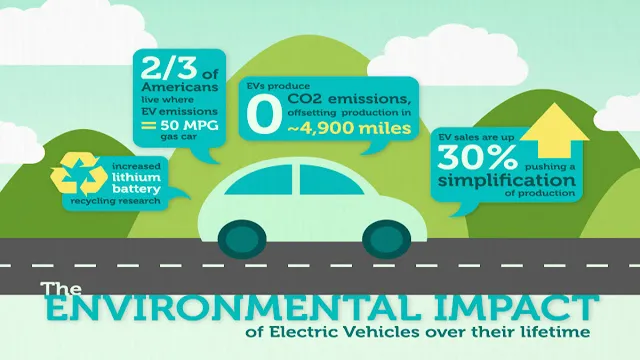Unveiling the Eco-Friendly Future: The Top 10 Benefits of Electric Cars
Electric cars are becoming increasingly popular as people around the world make the switch to more eco-friendly transportation options. With the rising cost of gas and the push for a greener future, it’s no wonder why more and more people are opting for electric vehicles. While there are certainly some challenges that come with switching to an electric car, there are also a multitude of benefits that just can’t be ignored.
In this blog post, we’ll explore some of the biggest advantages of driving an electric car, from cost savings to reduced environmental impact. Whether you’re considering making the switch or just curious about the benefits, this post will give you plenty of reasons to go electric. So, buckle up and let’s take a drive through the benefits of electric cars!
Environmental Benefits
When it comes to the benefits of electric cars, the environmental advantages are definitely at the top of the list. Electric cars produce fewer emissions than their gas-powered counterparts, which means they’re better for the air we breathe. Not only do electric cars reduce greenhouse gas emissions, but they also don’t emit any pollutants or toxins like nitrogen oxides or particulate matter.
This means that electric cars can help reduce the amount of smog and air pollution in urban areas. Additionally, electric cars are much quieter than traditional cars, which can help reduce noise pollution. All in all, the benefits of driving an electric car extend beyond saving on gas money.
By switching to an electric vehicle, you are also making a positive impact on the environment and the health of those around you.
Zero Emissions
Zero emissions is a term that refers to the complete absence of harmful pollutants produced by a vehicle or a manufacturing plant. The environmental benefits of zero emissions are numerous and cannot be overstated. One of the biggest advantages is the reduction in air pollution, which has a direct impact on human health.
The World Health Organization estimates that air pollution is responsible for more than 7 million deaths per year. By eliminating emissions, we can reduce the number of people who suffer from respiratory illnesses and other health problems caused by air pollution. Additionally, zero-emission vehicles and manufacturing plants reduce greenhouse gas emissions, which contribute to climate change.
By lowering our carbon footprint, we can help slow the rate of global warming and reduce the impact we have on the environment. Switching to zero emissions is one of the most effective ways to move towards a cleaner, greener future. It’s an investment in the health and well-being of the planet and all its inhabitants.

Reduced Air Pollution
Reduced Air Pollution is one of the most significant environmental benefits of modern technological advancements. Industries, transport sector and the increasing use of fossil fuels all contribute to poor air quality in the urban regions. Thanks to new and innovative tools, such as air quality monitoring sensors, government regulatory measures, and scientific studies, a lot of efforts are being made to reduce the amount of harmful pollutants in the air.
Such endeavors have led to an increasing number of electric cars, electric public transport, and the use of renewable energy to power businesses, significantly reducing emissions that would otherwise have been released into the environment. In cities where this transition is being made, there has been a marked improvement in air quality from what it was before. The decline in air pollution levels can be a driving force for a healthier environment and a better quality of life.
Financial Benefits
One of the main benefits of electric cars is the financial advantage they offer. While the initial purchase cost of an electric vehicle may be slightly higher than a traditional gasoline-powered car, the long-term savings are substantial. For instance, the cost of charging an electric car for a full charge is significantly lower than refueling with gasoline, and the cost of maintenance and repairs is notably reduced as there are not as many moving parts that need regular servicing.
Additionally, electric cars often come with government incentives, tax credits, and lower insurance premiums. On top of all that, electric cars retain their resale value better than gas-powered cars, meaning they can be sold for a higher price if the need arises. Therefore, it’s not just the reduced carbon footprint that makes electric cars attractive; it’s the potential financial savings over time that are hard to pass up.
Lower Operating Costs
One of the key financial benefits of reducing your operating costs is the potential for significant savings. By identifying areas where you can make changes, such as reducing energy usage or streamlining processes, you can decrease your overall expenses while maintaining or even improving the quality of your products or services. This can have a positive impact on your bottom line, allowing you to reinvest those savings back into your business or allocate them towards other areas of growth.
Additionally, lowering your operating costs can also help you to remain competitive in your industry, as you can offer more attractive pricing to customers while still maintaining a healthy profit margin. Overall, taking steps to reduce your operating costs can be a smart financial move that provides long-term benefits for your business. So why not start exploring areas for improvement today?
Tax Incentives
Tax incentives are an excellent way to derive financial benefits and save money. Organizations typically receive tax incentives as a means of promoting activities that support economic development. By claiming these tax incentives, businesses can reduce their tax liability and invest the saved money back into their enterprise.
Tax incentives vary by state and industry, so it is crucial to research the applicable incentives to capitalize on the benefits available. For example, tax credits are available for businesses that develop or improve eligible properties, invest in research and development, or have energy-efficient buildings. Other incentives include deductions for equipment purchases or employee hiring credits.
Such incentives are excellent for small businesses looking to stimulate growth and expansion. Claiming these incentives does require effort, but hiring an expert like a CPA can help guide you through the process and ensure maximum savings. The key takeaway is that researching and claiming tax incentives can provide significant financial benefits for businesses of all sizes, making it an essential part of any business strategy.
Less Maintenance Needed
One of the best financial benefits to having a low-maintenance property is the cost savings. By reducing the amount of time and money spent on upkeep, homeowners can save a significant amount of money over time. A low-maintenance landscape design, for example, can save water and reduce the need for regular lawn care services.
The use of durable and long-lasting materials for home construction and outdoor features can also reduce repair and replacement costs over time. Additionally, a low-maintenance property can be more appealing to potential buyers, increasing its resale value. By investing in a low-maintenance property from the outset, homeowners can enjoy a more cost-effective and sustainable lifestyle for years to come.
Convenience Benefits
Electric cars offer numerous benefits, with one of the most significant being the convenience they provide. Unlike traditional gas-powered cars, electric vehicles don’t require frequent trips to the gas station or oil changes. Instead, you can simply plug your car into an electrical outlet at home or a public charging station while you go about your day.
This eliminates the hassle and expense of maintaining a gas-fueled car and frees up more time and money for other activities. Additionally, electric cars are known for their quiet operation, smooth acceleration, and instant torque, making them a joy to drive. So if you’re looking for a car that’s not only good for the environment but also convenient and enjoyable to drive, you might want to consider going electric.
Fuel Availability
When it comes to fuel availability, convenience is key. As a driver, the last thing you want is to have to go out of your way to find a gas station. That’s why it’s important to have plenty of fuel options available in easily accessible locations.
Whether you’re on a long road trip or just running errands around town, having a gas station nearby can take away the stress of worrying about running out of gas. Plus, with more and more gas stations offering amenities like convenience stores, car washes, and even restaurants, stopping for gas can actually be a welcome break in your day. So next time you’re planning a trip or just heading out on your daily commute, make sure you have plenty of fuel options available in the areas you’ll be driving through.
Trust us, your future self will thank you.
Quieter Driving Experience
If you’re in the market for a new vehicle and one of your priorities is a quieter driving experience, you’re in luck. Many modern vehicles are designed to provide drivers with a more serene ride. From noise-cancelling technology to aerodynamic design features, there are numerous ways that car manufacturers are working to reduce the amount of noise that enters the cabin of a vehicle.
Not only does this make for a more enjoyable ride for the driver and passengers, but it also contributes to overall safety by reducing driver fatigue and distraction. So if you’re looking for a convenient benefit when it comes to car ownership, consider investing in a vehicle that offers a quieter drive.
Safety Benefits
One of the biggest safety benefits of electric cars is their lower risk of explosions and fires. Unlike gasoline-powered vehicles which are at risk of bursting into flames in the event of a collision or fuel leak, electric vehicles don’t have such a volatile energy source. Additionally, electric cars don’t produce harmful exhaust fumes which can cause respiratory problems for both drivers and pedestrians.
They’re also quieter which means they don’t pose a disturbance to the environment or to people living in proximity to major roads. In the event of an accident, electric cars automatically shut down power to the battery, preventing any electrical hazards. All in all, electric cars offer a safer and healthier alternative to gas-powered vehicles that can potentially save lives and lessen the burden on our planet.
Conclusion
In conclusion, the benefits of electric cars are electrifying! From reducing greenhouse gas emissions to saving on fuel costs, these vehicles are the wave of the (clean) energy future. Plus, with increasing ranges and convenient charging options, owning an electric car no longer feels like a shocking change. So don’t be a resistor – make the switch to electric and experience the current of sustainable transportation.
“
FAQs
What are the environmental benefits of electric cars?
Electric cars produce zero emissions, which helps to reduce air pollution and combat climate change. They also have a smaller carbon footprint than gas-powered cars due to their reliance on renewable energy sources.
Are electric cars cheaper to run than gas-powered cars?
Yes, electric cars are generally cheaper to run than gas-powered cars. They have lower fuel costs and require less maintenance, which can save drivers money in the long run.
How far can electric cars travel before needing to recharge?
The range of electric cars varies depending on the model, but most modern electric cars can travel between 100-300 miles on a single charge. Some newer models have a range of up to 400 miles.
Are there any incentives for purchasing an electric car?
Yes, many governments offer incentives for purchasing an electric car, such as tax credits and rebates. Additionally, some electric car manufacturers offer incentives such as free charging for a certain period of time.
